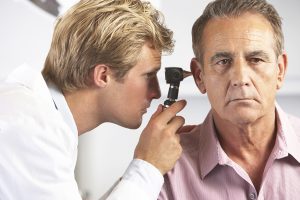 Hearing helps us stay connected to the outside world and keeps us safe by warning us of potential dangers around us. Hearing loss induced by growing age in elderly people makes it difficult for them even to realize, that they have a hearing problem. Because age-related hearing loss progresses slowly and worsens over the time. If the loss of hearing occurs to a person, it is irreversible, and treatments will improve hearing but do not restore your hearing according to audiology.com.
Hearing helps us stay connected to the outside world and keeps us safe by warning us of potential dangers around us. Hearing loss induced by growing age in elderly people makes it difficult for them even to realize, that they have a hearing problem. Because age-related hearing loss progresses slowly and worsens over the time. If the loss of hearing occurs to a person, it is irreversible, and treatments will improve hearing but do not restore your hearing according to audiology.com.
Various Categories of Presbycusis
There are six types of presbycusis that includes: Indeterminate Presbycusis, Mixed Presbycusis, Mechanical Presbycusis, Metabolic Presbycusis, Neural Presbycusis, and Sensory Presbycusis, Sensory Presbycusis, loss of outer hair cells in the organ of corti, a structure in the cochlea which produces nerve impulses in responses to sound vibrations. Firstly, cochlea base if affected and then slowly progress towards cochlea inner tip. This starts in mid-life of a person, then progress slowly at elder age and shows it affects. Neural Presbycusis, refers to cochlea nerve cells and auditory pathways to the brain. This category is determined as a genetically induced hearing loss and begins in early life. Until older age, the effects of hearing loss do not show up. Metabolic Presbycusis, results from stria vascularis, that supplies blood to the inner ear and maintains the perfect balance of chemical and bioelectric of the cochlea. Hearing loss of stria vascularis represents a flat hearing curve, affecting entire cochlea. It is also doubted this is due to the genetic factor that passes from generation to generation.
 Mechanical Presbycusis, the cochlea basilar membrane thickening and stiffening degenerate. This membrane supports an organ of corti that helps to translate sound vibrations into electrical signals. Mechanical Presbycusis progresses slowly and is associated with a gradual lowering of sensorineural hearing loss. Mixed Presbycusis is a combination of all the other types of age-related hearing loss. See kelownahearing.com for more on this.
Mechanical Presbycusis, the cochlea basilar membrane thickening and stiffening degenerate. This membrane supports an organ of corti that helps to translate sound vibrations into electrical signals. Mechanical Presbycusis progresses slowly and is associated with a gradual lowering of sensorineural hearing loss. Mixed Presbycusis is a combination of all the other types of age-related hearing loss. See kelownahearing.com for more on this.
Indeterminate Presbycusis is a case, in which none of the above said types are categorized in this. Categorizing presbycusis is easy, but it is not as easy as distinguishing which category is responsible for the patient’s loss of hearing. There are many ways to treat and manage presbycusis. Get your hearing test if you think you have hearing issues depending on how severe the problem is, your local doctor suggests a Kelowna hearing aid, with which your quality of life gets better.
Habitual Factors That Induce Presbycusis
A person can delay the onset of age-related hearing loss, and by practising good ear and hearing tips from a young age, one can prevent the onset of presbycusis. These include: protecting your ears from loud sounds, stop inserting liquids or self-prescribed medicines in the ear, seek medical treatment in case of ear-discharge or severe pain in the ear, maintaining good records of diabetes and hypertension, that predispose hearing loss development as well as avoid smoking. It is unfortunate to people who lose their hearing ability for their unnoticed mistakes and sometimes, there is nothing to do with pathophysiological changes of age related issues, genetic and environmental factors. The onset of age-related hearing loss is due to this. Many people are unaware that, hearing loss can also be caused by growing older. The treatment for hearing loss will usually be the use of modern hearing aids.

